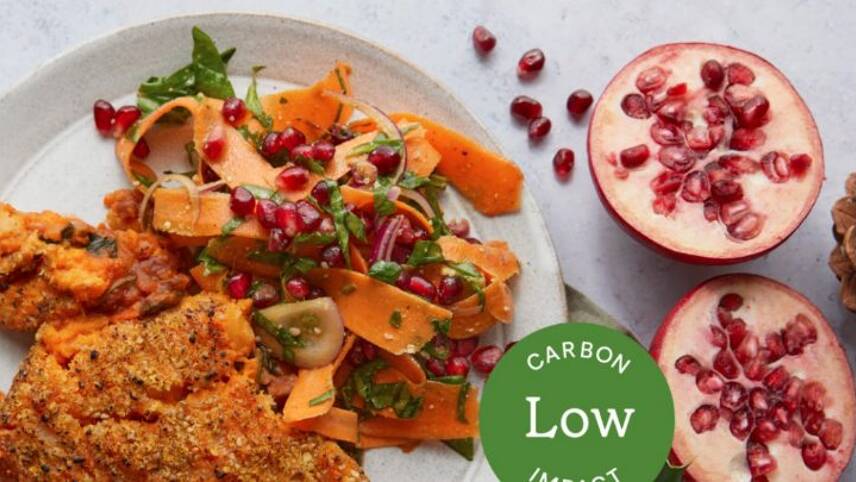Register for free and continue reading
Join our growing army of changemakers and get unlimited access to our premium content

WWF is recommending that we cut our dietary emissions by around one-fifth this decade. Image: Mindful Chef
The company has partnered with consultancy ClimatePartner to quantify and communicate the life-cycle carbon footprint of its recipes, with those classed as low-carbon badged as such, and customers are also able to see on-pack details about the footprint of the whole recipe plus each portion.
Emissions are accounted for on a farm-to-fork basis, Mindful Chef claims, with accounting covering farming, transportation, chilling, storing, cooking and disposing of ingredients, as well as packaging.
The classification that Mindful Chef is using comes from WWF, as part of the NGO’s ‘Planet-Based Diet’. Recipes that generate 1.6kg of CO2e or less across their life-cycle will be labelled.
WWF’s framework launched in 2020 and outlines how emissions can be reduced by lowering meat consumption, eating more locally and seasonally, and preventing food waste. It sets out an international target of reducing diet-related emissions to 4.09kg of CO2e per person, per day, by 2030 – down from 5.17kg in 2020.
Mindful Chef told edie in a statement that it has not developed new recipes for the purpose of the new labelling scheme. It claimed that “much of its menu” was already low-carbon, due to work to date on sustainability.
“Our low-carbon range, on average, emits 20% less carbon than the average UK dinner,” said Mindful Chef’s sustainability manager Emma Detain. “Putting this into practice, if everyone in the UK swapped one dinner a week for a low-carbon recipe, it would save more than 1.5 million tonnes of CO2e per year.”
Green light
Eco-labels have been something of a talking point in the sustainability space in recent months., after a 2020 study from the Carbon Trust found that two-thirds of consumers in Europe would be supportive of their introduction.
June saw the launch of a new labelling scheme from new non-profit Foundation Earth, developed in partnership with Oxford University. A string of big-name businesses across the UK and EU are set to trial the labels from this autumn, including Tyson, Nestle, Sainsbury’s, Costa Coffee, Marks & Spencer and VeeTee Rice. Nestle notably first revealed that it was considering adding carbon labelling to products in 2019.
Other food and drinks companies to have launched or expanded efforts to better communicate the environmental impact of products with shoppers in recent months include Upfield, which owns brands including Flora, and Quorn Foods.
The catering firm for COP26, Levy UK + Ireland, also added carbon labels at the conference, in a move that received much media attention, with some vegan groups arguing that all options should have been plant-based to slash carbon further.
And, just this week, in an exclusive interview with edie, Greggs’ head of sustainability Paul Irwin-Rhodes revealed that the bakery chain will be exploring the possibility of eco-labels in 2022.
Sarah George


Please login or Register to leave a comment.